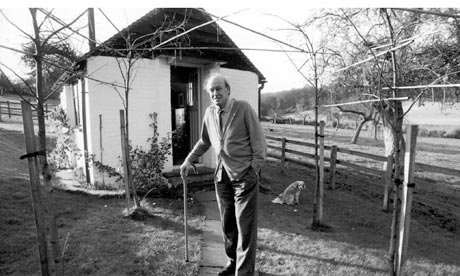
Roald Dahl was born on 13 September 1916, and Roald Dahl Day is celebrated every year on the anniversary of his birthday. The Guardian is joining in the fun with a live streamed event with Michael Rosen, which is available to watch here.
Dahl is one of the most popular children's authors of all time, but at the time of the publication of his first stories for children he had already garnered a reputation for his sardonic and sadistic short stories for adults.
Phillipa Pearce (herself a widely loved children's author) admitted, in her 1967 review of James and the Giant Peach and Charlie and the Chocolate Factory (above), to a nervous stir on her first reading of his children's books.
Yet it was this nervous stir - his understanding of the cruelties and kindnesses of childhood - that most attracted children to the world of Dahl. However, his cruelty could sometimes get him in trouble with parents, as this 1985 interview with Polly Toynbee, following the publication of his classic The Witches, demonstrates.
A 1989 Observer profile of Dahl (click here to read) examined how his life and losses had shaped his work; and the conclusion that Dahl was still driven by standing up for the underdog informs much of the resonance that children of all ages find in his stories.
Not even grown up children are immune from his charms - in November 1998, Nigel Slater wrote here about how he wished he had written Roald Dahl's Cookbook. The Guardian's obituary of Dahl, in November 1990, called him "a children's champion," and in March 2000 Roald Dahl was voted the nation's favourite author, beating JK Rowling, Jane Austen, Charles Dickens and William Shakespeare.

